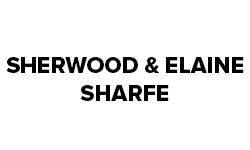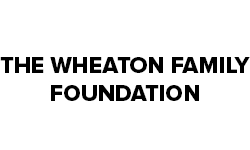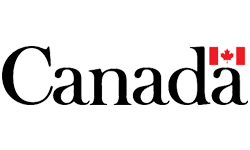Part B Learning Plan – Social Studies 20, History 20, Native Studies 20
Throughout these inquiries students are encouraged to practice the principles of dialectical thinking and work to consider multiple perspectives in their decision-making processes.
Inquiry
What responsibilities do we have to one another?
- Are Human Rights Universal?
Big Ideas Explored:
- individuals in society make decisions as to what degree they will honour human rights;
- Societies vary in their understanding and application of human rights and responsibilities;
- Citizens decide which obligations and responsibilities individuals, and groups will collectively assume for each other’s human rights; and,
- Imperialism and colonization have affected the application of human rights.
Inquiry
How did events of the 20th and early 21st century influence our perspectives of and about citizenship and human rights?
- What role did conflict play in this development?
Big Ideas Explored:
- There are interconnections between social, economic, political and cultural systems that are important to examine to understand how change in one affects the others;
- The relationship between collective and individual rights varies according to the political system of the society;
- Groups seek to have control over decision-making processes which have an impact on their cultural distinctiveness and well-being; and,
- Society structures itself to find a balance between domestic priorities and international considerations.
- From whose perspective are these decisions made?
- What are the responsibilities of citizens to society?
- What are the responsibilities of society to its citizens?
Questions to Guide Inquiry
Essential questions and guiding questions are posed to support teachers as they facilitate students’ exploration of the inquiry. Teachers are encouraged to adjust the wording, omit, or add questions as they choose.
- In what ways is ideology useful in explaining human beliefs and behavior?
- What are the limitations of ideology in guiding beliefs and behavior?
- How can governments be held accountable for their human rights violations?
- What are the limitations of ideology in explaining beliefs and behaviours?
- Perspective?
- What role do the following play in achieving human rights?
- Economy
- History
- Compassion
- How does ideology and worldview influence our view of social justice?
- What are the historical and international influences on social justice?
- How does society achieve a balance between the responsibilities of citizens to society and society’s responsibilities to its citizens?
- In considering its best interests, what should a nation consider:
- The needs of its citizens and the state as being of paramount concern; or,
- The needs of the nation as being part of a larger whole which must be considered.
- Has Canadian society been organized to reflect national values and beliefs?
- In considering its best interests, what should a nation consider:
Surface additional questions that students have.
CONNECT TO TOPIC AND SURFACE STUDENTS’ THINKING ABOUT …
Suggestions are posed here to frame the context for student thinking and cause students to begin thinking about the topic.
Vocabulary is introduced and noted here. This section frames the “We do” portion of the lesson where teachers guide the initial structure of the inquiry.
- Surface student thinking in response to the prompts or hook questions posed.
- Add questions from students; adjust wording of questions as needed.
- Chart student thinking for later reflection.
Exploring our responsibilities to one another
This inquiry examines the range of responses that exist internationally to protecting and ensuring human rights. Students examine the links between ideology, economic prosperity, and human rights.
Structured suggestions are provided here but teachers familiar with inquiry are encouraged to use the questions to allow the inquiries to develop according to student interests.
Inquiry
What responsibilities do we have to one another?
- Are Human Rights universal?
- How have our perspectives on this issue changed?
- How did events of the 20th and early 21st century influence our perspectives of and about human rights and citizenship?
Hook Questions Think about… Talk about…
- What human rights do you have?
- How do we decide what should be a human right within a society?
- What happens when people’s ideas of human rights come into conflict?
- Can countries/governments be held to account for violation of basic human rights?
Present a current human rights issue and have students debate and consider the following responses to the questions above based on the issue, then develop some parameters for responses above. Possible examples:
Does everyone have the right to:
- clean drinking water?
- food?
- housing?
- health care?
- education?
Identify your students’ responses.
Examine where your response to question came from.
What influenced or guided your response? What are the similarities and differences arising? What themes are students noticing?
Vocabulary
- Dignity
- Compassion
- Concern
- Human Rights
- Individual Rights
- Collective Rights
- Universal Rights
DEVELOPING UNDERSTANDING
- Surfacing student thinking, posting, and then reflecting on thinking to note how thinking has changed and what has caused the changes.
- Jigsaw strategy approach: Students, individually or in groups, explore similar questions, present their findings to the group. The teacher helps to note similarities, differences, themes. Students are encouraged to develop summary statements to clarify their thinking and describe new learning.
- Reflect on initial thinking to note how thinking has changed. What is the evidence to support the new learning?
- Continue to make connections to the Enduring Understandings.
Define:
- human rights,
- collective rights
- individual rights
- universal rights
In examining human rights issues have students use the Action Cycle strategy. For chosen issues have students Identify:
- Conditions, Objectives, Actions, Result
As a class Think about… Talk about…
Choose 3 events that were turning points in the development of contemporary Human Rights.
Defend your choices.
Discussion of these points will clarify issues and mis-understandings that students may have.
What were the tipping points that culminated in the declaration of:
- Human Rights?
- Indigenous Declaration of Human Rights?
- Declaration of the Rights of the Child?
- Identify
- What rights were infringed upon/violated/abused?
- Context that allowed situation to exist
- Prevailing ideology/worldview
- Effects of agreements
For all these inquiry suggestions, teachers are encouraged to make links to current national or international events that characterize the recurring citizenship themes and understandings. Students should not see this information as something that happened in the past. Rather students should understand that citizenship requires constant vigilance.
Surface student thinking in response to the prompts or guiding questions. Chart or record their thinking for later reflection.
The statement: Geography is destiny.
- What difference / how does your birthplace, time of birth, impact your human rights?
- What are the advantages and disadvantages that are inferred upon you because of your place of birth?
Basic Human Rights
- Safe from violence,
- Free,
- Literate and Educated,
- Access to Technology,
- Live in a Democracy
Exploring a Universal Human Rights, Finding an International Other
Research some international human rights issues.
See Section C for suggestions.
- Tell why the issue or individual was chosen
- Refer back to International Development Index – Indices of Well-being. Identify these indices and have them name why that issue or person was chosen
- Rights that issue/ individuals do not have – impact on self/person
- Prevailing ideology/worldview in country that allows issue to exist
Options for investigation
a) Pick a human rights inequity, undertake an action to address/redress the inequity.
Sources – http://www.amnesty.ca/
Find “their/my international other” and examine their issue.
Have students go to the website – choose an international issue they want to examine. What privileges do you have as a Canadian that you can leverage to assist your international other?
b) Interview a refugee, newcomer to community about their human rights issue that brought them to Canada
Identify:
- Conditions
- Evidence that there is a problem
- Current ideology of country/government that allows that situation to exist
- Current state of human rights in the country
- Objectives
- What human right do you have that if applied to your international self would change their expected outcome?
- Actions
- What actions are you willing to assume to redress issue?
- What collective actions are required to redress issue?
- What actions can Canadians do to redress issue?
- Results
- What happened as a result of your actions?
- What are your next steps?
CONNECT TO TOPIC AND SURFACE STUDENTS’ THINKING ABOUT …
- Interconnections between social, economic, political, and cultural systems.
- Relationship between collective and individual rights and societal political systems.
- Controls over decision-making processes and their impact on distinctiveness and well-being.
How did events of the 20th and early 21st century influence our perspectives of and about citizenship and the rights of the individual?
- What role did conflict play in this development?
Placing events in history
The purpose of this discussion is to surface students’ understanding of the interplay between historical events and ideology on citizenship and human rights issues. Students are exploring themes of behaviour and looking for principles of civil interaction among them, rather than identifying the chronology of specific events. Teachers may wish to use a timeline in the classroom to help students see that issues of power inequity, struggle for rights, etc. continue to recur through time.
Historical events
- What are some of the historical events that have had an impact on our views of citizenship and human rights? Identify:
- the issues and perspectives involved,
- the ideologies or opposing constructs
- the consequences of the event
- the primary historical influences on current thinking of human rights
Effects of Imperialism and Colonialism
- How have citizens in Canada been impacted / continue to be impacted by imperialism and colonialism? Identify:
- the issues and perspectives involved,
- the ideologies or opposing constructs
- the consequences of the event
- the primary historical influences on current thinking of human rights
- How have imperialism and colonization affected the application of human rights
- In Canada?
- Globally?
Develop a list of events that students may wish to explore to find the answers to the questions posed above.
DEVELOPING UNDERSTANDING
Have students choose a specific area to consider and use the jigsaw strategy to research and present findings so that themes can be identified and explored.
Research options
Choose a specific event to research either in groups or individually. Students are reminded that there are many options to research other than reading text. Video and audio files can supplement research. What resident experts are available to be interviewed for their views on the issue?
Allow students to present their findings. Identify the time period of the event on the posted class timeline.
What did we learn?
- What similarities are students noticing?
- What themes are arising?
- What were/are the world conditions that allow the event to occur?
- How often did the event have global consequences?
- Why did that happen?
- What constructs / principles are/were nations / stakeholders trying to balance?
- rule by majority or greatest common good (greatest good for the greatest number)
- What were the similarities and differences in philosophy?
- What were the determiners, primary impacts on decisions?
- Whose perspective / worldview was not represented?
- What were the prevailing ideologies that impacted the decisions made and the forming of societal structures?
- What was guiding their decision making? What were nations striving to achieve? i.e.
- national security and international peace
- wealth and power
- competition vs. cooperation
Citizenship challenges are ongoing. Teachers are challenged to bring current issues into the classroom so that students can make citizenship connections.
Historical Thinking Connections
Historical Significance: How do we decide what is important to learn about the past?
Primary Source Evidence: How do we know what we know about the past?
Cause and Consequence: Why do events happen and what are their impacts?
Historical Perspectives: How can we better understand the people of the past?
Ethical Dimension: How can history help us to live in the present?
Continuity and Change: How can we make sense of the complex flows of history?
- What have been the consequences of the events on:
- human rights,
- traditional order and values?
- other?
- What was the progress achieved as a result of the event? i.e.
- allowing as many people as possible to live;
- giving as much wealth and power as possible; or,
- learning to live in harmony with the environment.
- other?
- What was the impact on the relationship between competition and cooperation and the impact of each on (dealing with conflict in) society?
- Were human rights expended in favour of the maintenance of order and security? i.e. What is more important to do?
- Maintain order and security regardless of the legal protection of human rights; or,
- Protect human rights regardless of the short-term effect on order and security?
- Which was more critical to meet; the needs of the citizens or the needs of the state/country as a whole?
- How was the global community impacted?
APPLY AND EXTEND KNOWLEDGE
- Should the future be viewed as something to be:
- Resisted as threatening and dangerous; or
- Welcomed as a natural process of change and development?
- Does your answer depend on which side of privilege you lie?
Prepare a response to your thinking that is represented in a manner other than paper pencil presentation.
EVIDENCE OF LEARNING
- What do you think now about…?
- What has caused your thinking to change?
- What evidence supports your thinking?
- Why is this information important to know?
- How will you use this information?
Are Human Rights Universal?
How did the events of the 20th and early 21st century influence our perspectives of and about citizenship?
Essential Questions
- In what ways is ideology useful in explaining human beliefs and behaviour?
- What are the limitations of ideology in guiding beliefs and behaviour?
- How does ideology influence our view of social justice?
- How does a society structure itself to find a balance between opposing constructs of:
- freedom and order, individual rights and collective rights, hierarchy and equality; and,
- what factors influence the finding of this balance?
- Has Canadian society been organized to reflect our national values and beliefs?
What kind of summary statements can students make regarding their understanding of the following:
- Individuals in society make decisions as to what degree they will honour human rights.
- Societies vary in their understanding and application of human rights and responsibilities.
- Individuals and groups choose the obligations they will collectively assume for each other’s human rights.
- Injustices of today have roots in the past.
- Canadian society is challenged to manage the co-existence of diverse worldviews.
- Canadian citizens work to achieve a balance between rights and responsibilities through learning and action.
- Canadian society has inequities and elimination of these is beneficial for all Canadians.
- For each individual, becoming aware of racism in Canadian society is an evolutionary process and a precursor to change.
- As citizens of local, national, and global communities, Canadians are conscious, self-reflective, and critical of their own beliefs and actions and seek to make positive change.
- Citizens show flexibility of mind.
STUDENT CITIZENSHIP JOURNAL OPPORTUNITIES
Students are keeping a Citizenship Journal to reflect upon their developing views of citizenship. This section provides prompts for student journals. Students are invited to choose one that interests them or propose their own. Students can also respond to any of the essential questions.
Students are encouraged to respond using a variety of genres.
- Is it important for a citizen to be compassionate? Caring?
- What did students learn about themselves in their research?
- Should Canada continue to respond to global human rights issues when there are basic human rights that are not being fulfilled in Canada? (i.e. clean drinking water for First Nations reserves)
© 2023 Concentus Citizenship Education Foundation Inc. All Rights Reserved.










